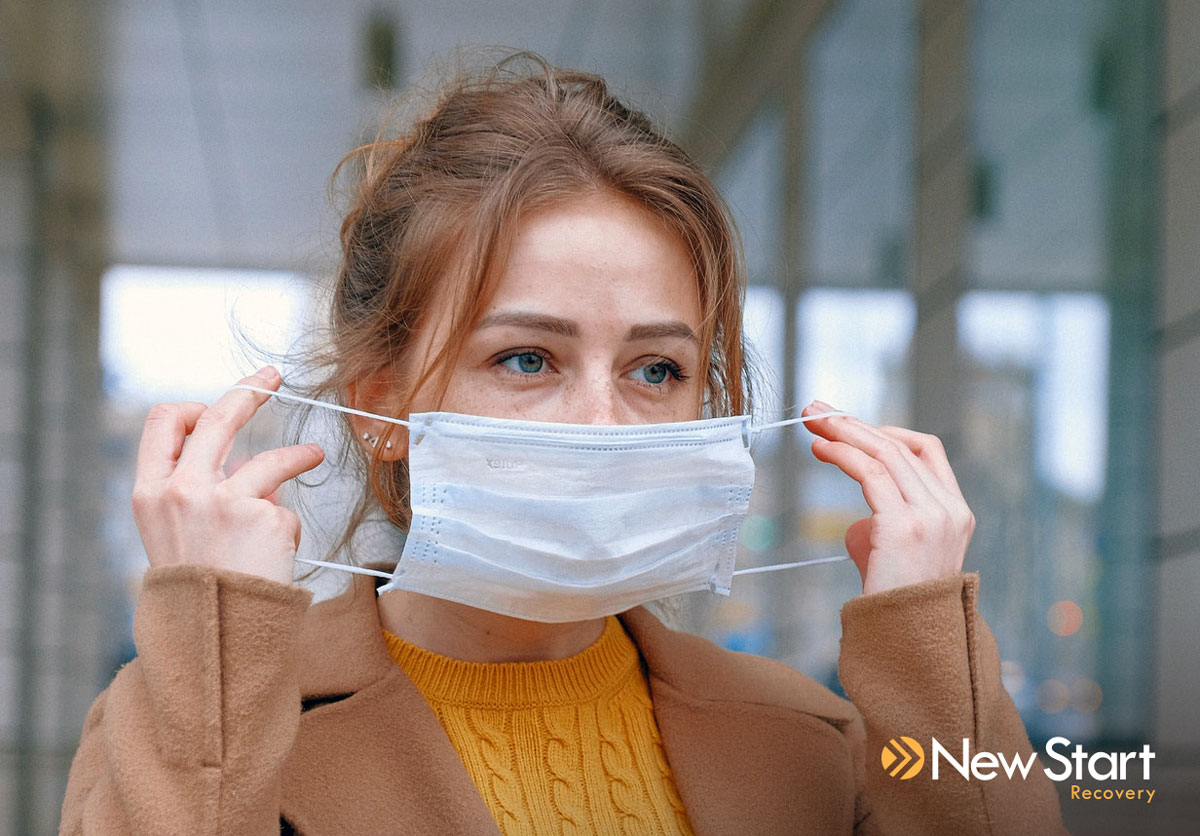Extended solitude changes the way your brain functions. After several months of quarantine, many recovering addicts find themselves returning to old destructive thought patterns that they worked very hard in rehab to move beyond. This is why AA groups always chirp, “It only works if you work it!” There is a lot of truth to that statement. But during COVID-19 social distancing, most recovering addicts found themselves in a position where it was very difficult, if not impossible to work the program. AA meetings were deemed a public health risk. Not everyone transitioned very well to video meetings or found them as helpful in staving off depression and anxiety. This would be easier to accept if there was any end to the pandemic in sight. But as the curve stubbornly refuses to plateau due to climbing cases, some may start to wonder what happens to recovery after COVID.

Talking About Your COVID Struggles
Addiction recovery teaches the importance of processing painful events in the addict’s past. Up until March 2020, most of those events fell under categories such as bad relationships, childhood issues, dysfunctional homes, and so on. But COVID-19 presented a unique event that most of us could never imagine affecting our lives: being isolated for 3+ months to contain a pandemic. Since recovery is about processing painful events, it’s important to validate how quarantine affected your mental health.
One particular issue to address with brutal honesty is any backslides or relapses that occurred during isolation. For many addicts, these could very well have happened without anyone being the wiser. But going back to the fellowship and omitting a slip up only hurts your recovery. Though it may feel shameful to lay your struggles with relapse bare, that is a cornerstone of recovery. Not doing so only makes the journey forward harder.
But not all difficulties with isolation need to involve backslides. No mental health problems are too mundane to share with a support network, because it’s quite likely that these problems are not fully lapsed as all of us begin returning to our old routines. It takes time to transition back to normalcy. It is also likely that you are not alone in the way you felt and/or are currently feeling. Connecting with others in the fellowship who are similarly struggling will help them feel less alone in their own recovery.
Re-Establishing Sober Maintenance Routines
 Finding meetings can be difficult as we start to return to our pre-COVID sober routines. Many AA and NA spaces are still closed, particularly in states with stricter reopening laws like California. Putting it off indefinitely presents an attractive alternative. But this sets a dangerous precedent for recovery: healthy routines keep our mind in a good space. Prioritizing good habits sets the mind back on track for a happier and more successful sobriety.
Finding meetings can be difficult as we start to return to our pre-COVID sober routines. Many AA and NA spaces are still closed, particularly in states with stricter reopening laws like California. Putting it off indefinitely presents an attractive alternative. But this sets a dangerous precedent for recovery: healthy routines keep our mind in a good space. Prioritizing good habits sets the mind back on track for a happier and more successful sobriety.
Many recovering addicts worry that recovery after COVID will never be the same. But although in-person meetings are still largely closed now, they will begin to open up more, and slowly things will return back to normal. Gyms are starting to re-open to get back in the groove of exercising, beaches are opening for safe social gatherings; these sober maintenance activities may be altered with masks and being farther away from others, but they’re still coming within reach. Experts and industry specialists speculate that we may have to wait for a vaccine to get to pre-COVID levels of community interaction (concerts, sports, festivals, and other close-quarter social events). It may take another year to get to that point, so recovery after COVID will still require a higher amount of dedication and patience than most recovering addicts have ever experienced. But we’re getting there.
Recovery After COVID: Will Things Ever Feel Normal Again?
The easing of social distancing restrictions presents the first opportunity in a long time to break away from ingrained habits from quarantine. But despite this slowly increasing access to being around other people, it will likely be a long time before things start to feel like they did before COVID. The struggle and frustration of accepting that is normal, and should be shared with the fellowship to avoid relapsing during these difficult times.
If you or a loved one is struggling with substance abuse, our addiction counselors are available 24/7 by phone: 714-455-3409

